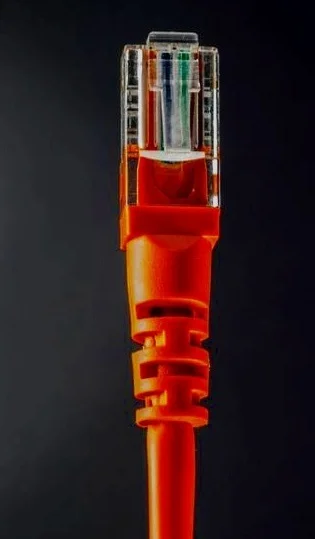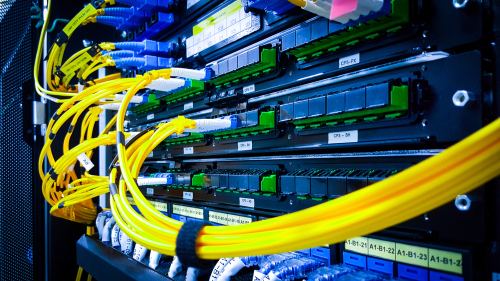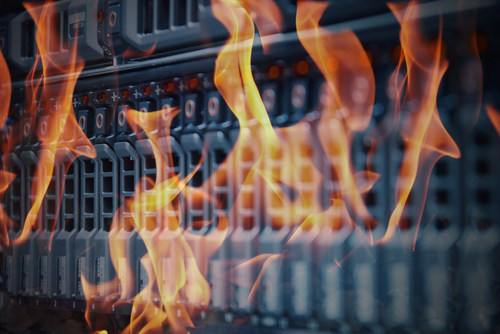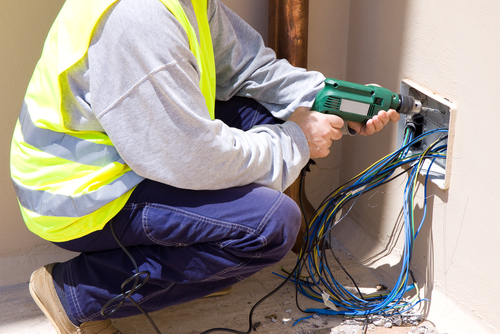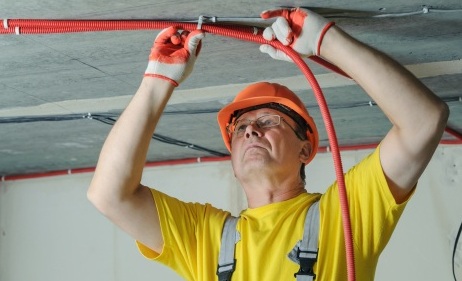Structured Cabling
Fiber, Coax
When installing or servicing structured cabling, our Prime Data Communications team checks conduit bends, pull boxes and joints to verify that the bend radius is optimal. Structured cabling pulls through tightly bent elbow fixtures are always back-fed. Where raceway or rack transitions expose cable, flexible conduit is recommended for protection.
Cat 5, Cat 5e, Cat 6
We install Cat5, Cat5e and Cat6 on a daily basis. One of the big questions for teams making decisions is which structured cable to use - is what amount of data does your network need to handle during peak-periods? Cat6 enables gigabit Ethernet - which can be ideal if your volume of transmitted data calls for gigabit performance. That said, to achieve true gigabit Ethernet speeds, every single component of your network needs to be gigabit rated. Think: switches, hubs, network interface cards.
Cat5e can still support gigabit speeds; and, frankly, its often more economical and performs just as well in many (though not all) environments. Where you’ll see the difference with Cat6 (the cable certified to handle gigabit Ethernet) is in transmission performance. If your environment is inhospitable to twisted pair cabling (with interference from power lines, lights, or manufacturing equipment), then Cat6 ought to be your cable of choice.
CAT5: supports 10BASE-T and 100BASE-T network standards - networks running at 10 Mbps or 100 Mbps - rated at 100Mhz
CAT5e: (Cat5 enhanced) works like Cat5 but includes an upgrade that reduces crosstalk (bleeding of signals due to induction, slowing network transfer speeds), and can support gigabit ethernet (1000BASE-T) - networks running at 1000 Mbps - rated at 350Mhz, making it well suited for networks planning to upgrade to gigabit ethernet
Enterprise Clients
Request a Bid
Building Custom Connections
Construction & Acquisitions - Infrastructure & Expansion
Horizontal Cabling, Trenching & Lifts
Connecting your network: telecom, computers, point of sale, security, and data between you and the provider or between adjacent data centers and users, requires networking cabling professionals like Prime Data Communications.
Intra-building cabling: conduit runs can be in ceilings or walls or under floors, and are used when outlet locations are permanent and when no wiring flexibility is required. Conduit runs are best limited to 100’, with two or fewer 90-degree bends between pull points.
Cabling around established surfaces: minimally invasive tunneling (horizontal boring) is best digging up floors or landscapes. Instead, horizontal boring allows us push pipe beneath the surface and then draw needed cable safely through that pipe. This minimally invasive process is ideal for pulling Ethernet, fiber optic or other cables that best suits your business needs.
New Construction cabling: cable trenching and wall-pulls, from endpoint to endpoint, are selected to meet networking requirements at the time of construction. Prime Data works with Enterprise Level clients, solely on large-scale or multi-site projects. Connecting large networks and local business-venues with that network is our specialty. It’s all we do.
Work with a Dedicated Prime Data Manager
Retail & Multi-Site Enterprises | IT & Telecom
Data Network Cabling Installation (Ethernet) using Cat5, Cat5e, Cat6 or Fiber Optic
Business Phone, VoIP Phone System Installs, Re-configures & Redesigns
Structured Cabling Design & Implementation
Data Wiring & Network Installation, WiFi / Wireless Network Installation | WLAN
Access Point, Security Camera Installation (CCTV, IP Security Cameras, Wireless Cameras, & Video Surveillance Install)
Point of Sale, Audio, Video Cabling & Wiring
Which Network Topology is best for your Business?



